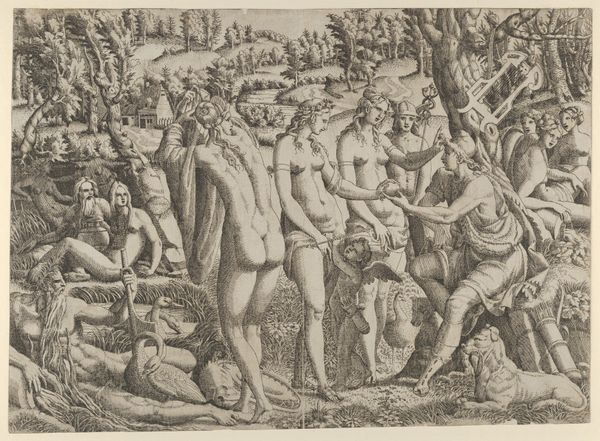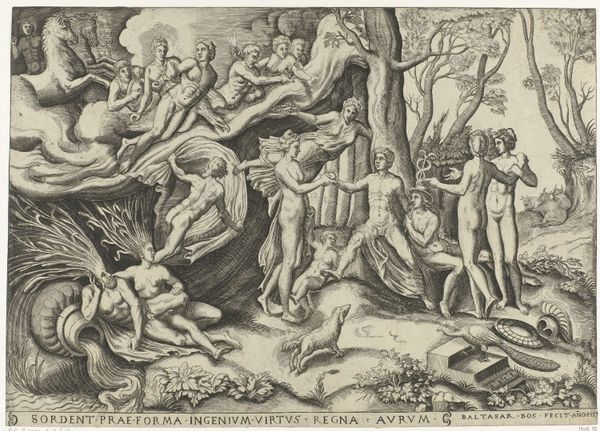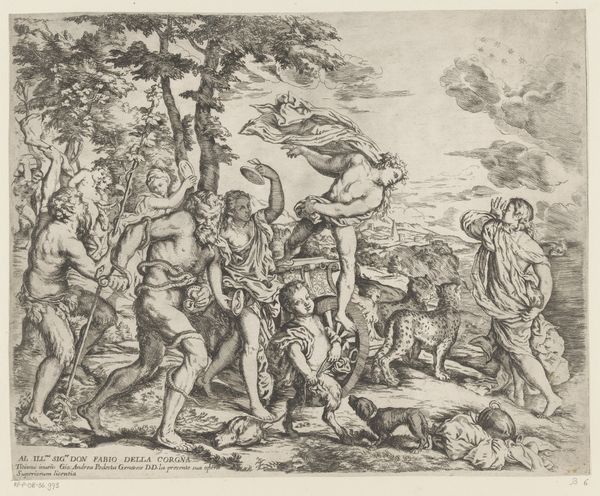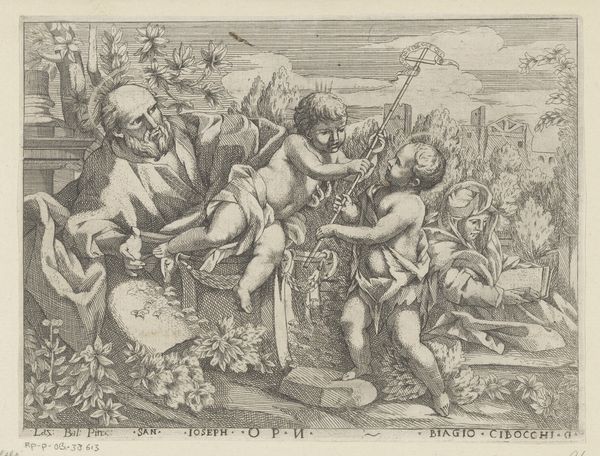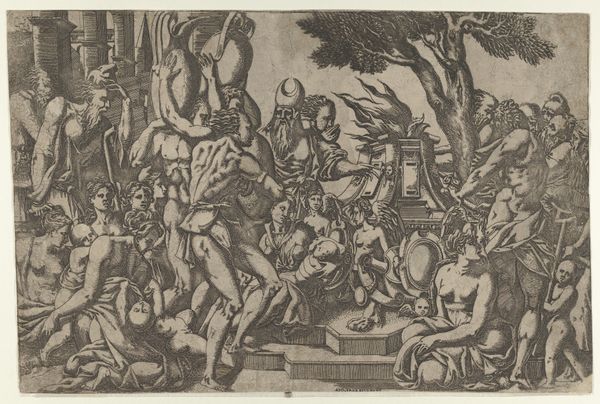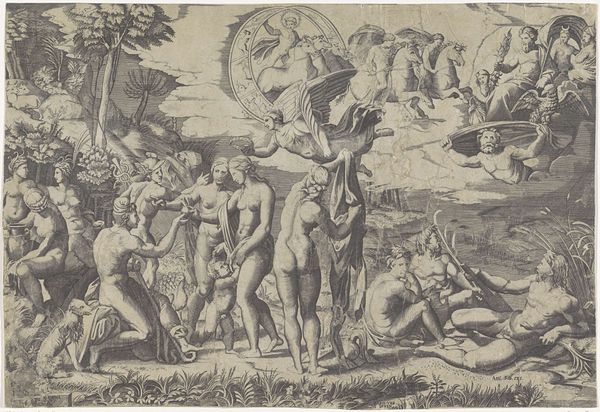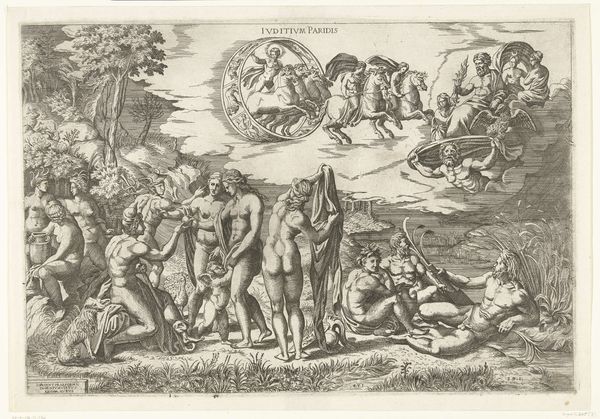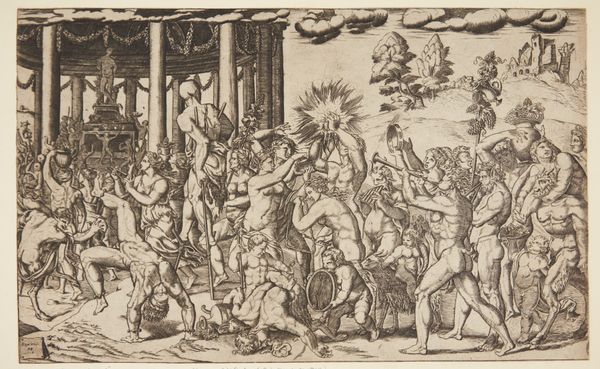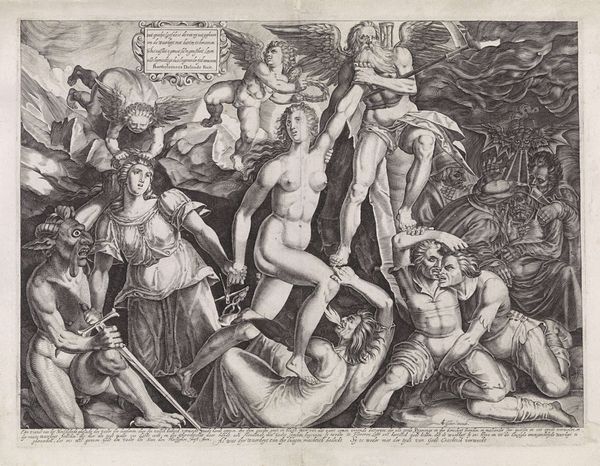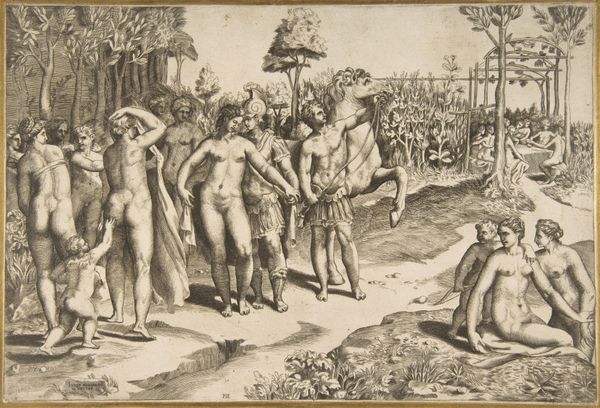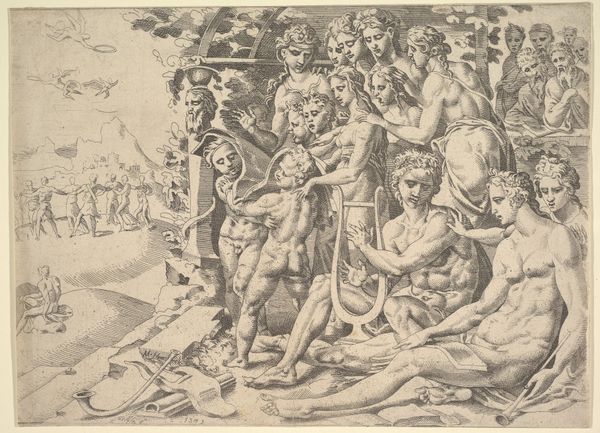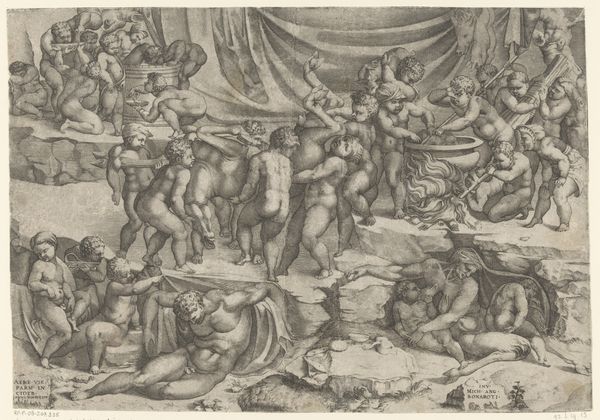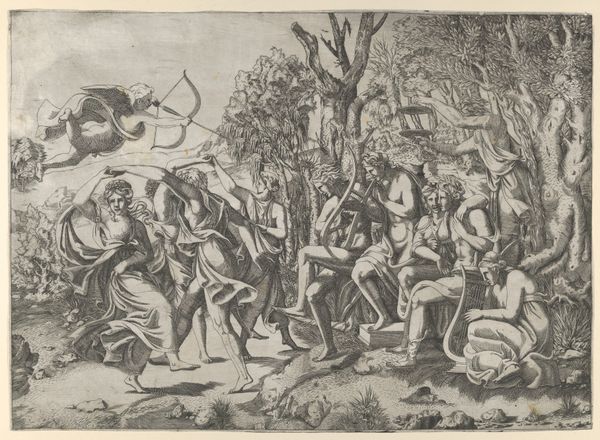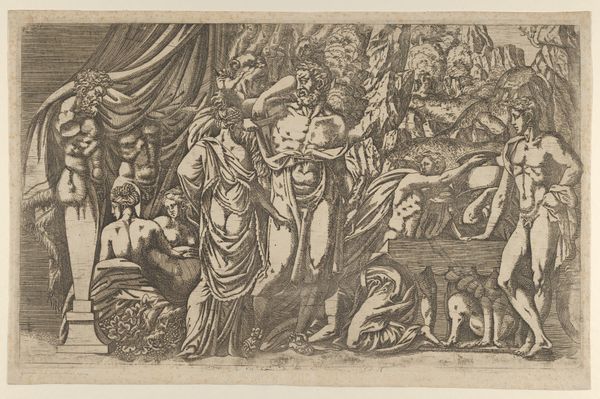
drawing, print, engraving
#
drawing
#
allegory
#
pen drawing
# print
#
pen illustration
#
pen sketch
#
mannerism
#
figuration
#
11_renaissance
#
history-painting
#
nude
#
engraving
Dimensions: Mount: 10 15/16 in. × 7 9/16 in. (27.8 × 19.2 cm) Sheet (trimmed): 7 3/8 × 5 1/4 in. (18.8 × 13.3 cm)
Copyright: Public Domain
Editor: This is "The Judgment of Paris" by Jean Mignon, made sometime between 1535 and 1555. It's an engraving. I'm immediately struck by the tension between the idealization of the nude figures and the potential commentary on power and beauty standards. What do you see in this piece, especially given its historical context? Curator: The historical context is key. Look at how this mythological scene is rendered through the lens of the Renaissance. "The Judgment of Paris" wasn't just a story; it was a stage upon which ideas about beauty, power, and divine favor were debated and contested. Notice the way Mignon depicts the goddesses. Who benefits from this depiction and who is marginalized? Editor: I see the focus on female bodies as objects of scrutiny and competition, which feels very relevant even today. The male gaze feels so present. Does the print's medium - an engraving intended for wider circulation - impact how we should interpret its message? Curator: Absolutely. Printmaking democratized images, disseminating them among different social strata. Mignon's "Judgment" became a tool for reinforcing or challenging social norms related to gender, class, and taste. Think about the contemporary debates surrounding representation and visibility. Is Mignon critiquing the objectification of women, or complicit in it? Is it possible to view this artwork, despite its antiquated aesthetic, as an active participant in a conversation that continues today? Editor: That's a great point. Considering this work as a participant invites new readings and opens it to contemporary feminist perspectives, rather than just dismissing it as another example of historical objectification. I hadn't thought of it that way. Curator: Exactly. And what can this "Judgment" tell us about how we judge today? Looking back to see forward, we might find, reveals that progress isn’t necessarily linear.
Comments
No comments
Be the first to comment and join the conversation on the ultimate creative platform.
